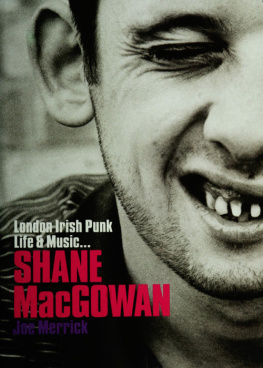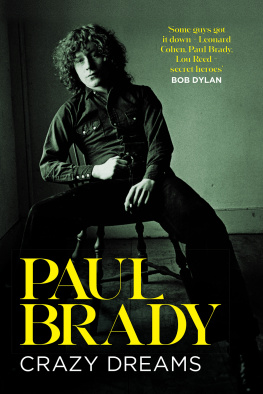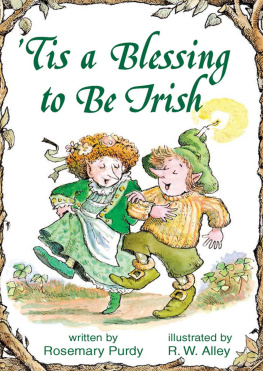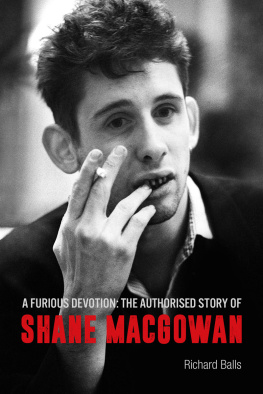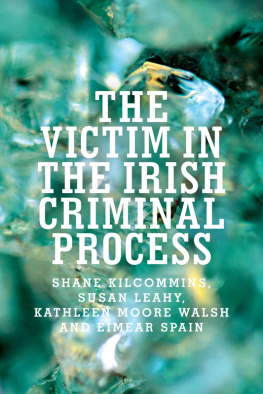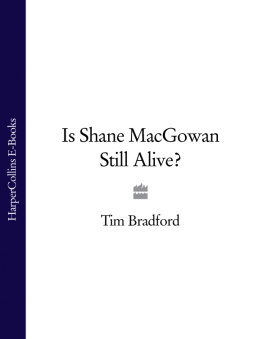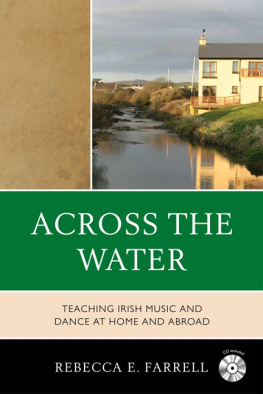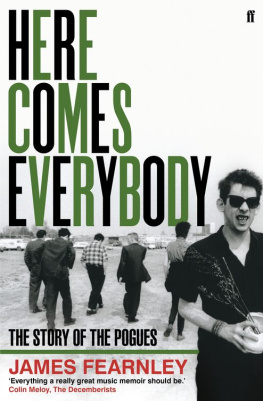Copyright 2001 Omnibus Press
This edition 2012 Omnibus Press
(A Division of Music Sales Limited, 1415 Berners Street, London W1T 3LJ)
EISBN: 978-0-85712-842-3
The Author hereby asserts his / her right to be identified as the author of this work in accordance with Sections 77 to 78 of the Copyright, Designs and Patents Act 1988.
All rights reserved. No part of this book may be reproduced in any form or by any electronic or mechanical means, including information storage and retrieval systems, without permission in writing from the publisher, except by a reviewer who may quote brief passages.
Every effort has been made to trace the copyright holders of the photographs in this book, but one or two were unreachable. We would be grateful if the photographers concerned would contact us.
A catalogue record of this book is available from the British Library.
For all your musical needs including instruments, sheet music and accessories, visit www.musicroom.com
For on-demand sheet music straight to your home printer, visit www.sheetmusicdirect.com
ACKNOWLEDGEMENTS
For providing additional source material for this book, I would like to offer my enduring gratitude and appreciation to the following individuals: Alan Cross, Andrew Anthony, Andrew Mueller, Andrew Vaughan, Andy Hurt, Annie Nightingale, Anthony Thornton, Antonella Black, Barry Egan, Bill Black, Brian Rohan, Catherine Jackson, Cathi Unsworth, Charles Shaar Murray, Charmaine OReilly, Chris Clunn, Colin Irwin, Colm Tibn, Danny Frost, Danny Kelly, David Cavanagh, David Quantick, David Sinclair, Eddie Doyle, Edwin Pouncey, Elaine McArdle, James Delingpole, Jane Simon, Jim Gonion, Joe Strummer, John Constantine, John Marcus, John Wilde, Johnny Cigarettes, Kathy Burke, Kathy Sweeney, Keith Cameron, Laurence Aston, Marian McKeone, Mark Cooper, Mark Prendergast, Martha Keenes, Michael Dwyer, Michael Sheridan, Mick Brown, Morten Stale Nilsen, Neil Perry, Neil Spencer, Niall Stanage, Nick Moulton, Paul Hill, Peter Paphides, Phil Lawton, Phillip Larkin, Rob Steen, Rose Rouse, Sancha De Burea, Sid Griffin, Simon Mayo, Steph Hendry, Steve Pyke, Stuart Bailie, Stuart Maconie, Tim Peacock, Tom Dunphy, Tonya Henderson & Victoria Clarke. Particular thanks must go to Sean OHagan, Gavin Martin & Adrian Deevoy, whose various articles concerning Shane and The Pogues over the years were a source of continued inspiration.
I consulted the following television/radio networks, magazines, newspapers and books during the course of my research, and in some cases extracted interview material. Many thanks then, to Amplifier, BBC, Beat, Daily Minor, Evening Herald, Loaded, Mojo, NME, Q Rock nReel, RTE, Sunday Business Post, Sunday Tribune, Sunday World, The Correspondent, Daily Telegraph, Guardian, Irish Famine, Irish Post, Irish Voice, Irish World, Observer, Sun, Sunday Independent, Time Out, Uncut & Virgin Encyclopaedia of Pop. The same applies to the following magazines which have ceased publication: Melody Maker (R.I.P.), Sounds, RCD Magazine and Jamming. I must also express all due appreciation to Ingrid Knetsch and Laurence Clark, who together run Paddy Rolling Stone the official Friends of Shane MacGowan web site. Through their website, I became aware of several Shane related magazine articles of which I had no prior knowledge. As with the above, in some cases I extracted interview material.
Several honourable mentions. First out of the hat is Chris Charlesworth, whose continued patience on this project has surely earned him a place in Heaven. Chris, the drinks and a copy of Im The Face are on me. As ever, I also remain indebted to Andrew King for providing a sympathetic ear, several articles from The Twilight Zone of Eighties publishing and a formidable knowledge of the folk scene. For her overall kindness and continued administrative skills, a king big thanks to Lucy. And last but certainly not least, my gratitude goes to Nikki for always finding the right picture to fit the frame.
On a personal note. To my friends at the top of the road: Jayesh, Viresh and Special Brew Steve. Cheers for the sparkling conversation and beer. To Mrs D (Alice) youre a good woman. As always, a heartfelt thanks to my wife and parents. And, of course, all thanks to Shane MacGowan himself, for providing 23 years of pure listening pleasure.
INTRODUCTION
For the best part of twenty years, Shane MacGowan has been writing fine songs. Big, fat tuneful songs full of life, death, war and whiskey. Songs that make you proud to be Irish, English or somewhere in between. And most importantly, songs you can return to again and again, safe in the knowledge that while you might have changed, they havent. In short, he writes songs built to last.
At times, however, its easy to forget that Shane MacGowan writes songs at all.
Since arriving on the punk scene in 1977 with The Nips, he has become as famous for his lifestyle as his contribution to the art of music. A renowned drinker, Shanes escapades with a bottle are now a matter of public record, his various pub-crawls and binges regularly commented upon in the pages of the national press. As with Charles Bukowski, Jeffrey Bernard, Richard Burton and Oliver Reed, MacGowans continuing association with drink has often threatened to overwhelm the very talent that brought him to prominence in the first place.
Yet close examination of that talent reveals a body of work perhaps unrivalled in recent folk, or indeed, most pop. By aligning Irish traditional music with his own experiences of fallen souls, wasted lives and the cruelty of the city, MacGowan and his band, The Pogues, resurrected interest in a genre many thought well past commercial resuscitation, dragging it kicking and screaming into the arenas and stadiums of the UK, Eire and the States throughout the Eighties and early Nineties. A joy to behold, The Pogues were a perfect distillation of strong liquor, deceptively good musicianship and punk rock attitude. And Shane was at the very heart of it all bottle in one hand, microphone in the other. Lauded by critics and fellow performers such as U2, Christy Moore, Bob Dylan and Sinad OConnor, MacGowan was seen by many as an able successor to the likes of James Joyce, Flann OBrien and the immortal Brendan Behan, his undoubted flair for word-play emblematic of Irelands rich, literary convenant.
Behan came from the Irish literary tradition of the bard being a drunk, getting paid in whiskey and sleeping in a ditch, Shane once said. I dont get paid in whiskey and I dont sleep in a ditch, but I see myself metaphorically like that as coming from that tradition. Of course, like all great romantic images, it wasnt destined to last. Bored by touring and ravaged by drink and drugs, he found himself ousted from The Pogues in 1991. Regarded as a spent force, MacGowan was fully expected to disappear into the musical ether, an entertaining footnote, if nothing else, to the history of Eighties pop. But in typically stubborn fashion, he just kept coming. As did his songs. In truth, they probably will do for some time yet.
The purpose of this book, then, is to examine those songs in accordance with Shane MacGowans life experience and the culture in which he was raised. After all, according to U2s mercurial frontman. Bono, the two are inextricably linked. I dont think anyone writes better songs than Shane the words are everything for him. Thats where he lives really. From a near idyllic childhood in County Tipperary, Eire to a surprisingly strong solo career in the mid-Nineties, each step of MacGowans route has been clearly marked in the songs he has written. Street violence and opium dens. Horse races and jail cells. The magic invention of faraway wars to the tramp living on his doorstep, its all in the songs.

